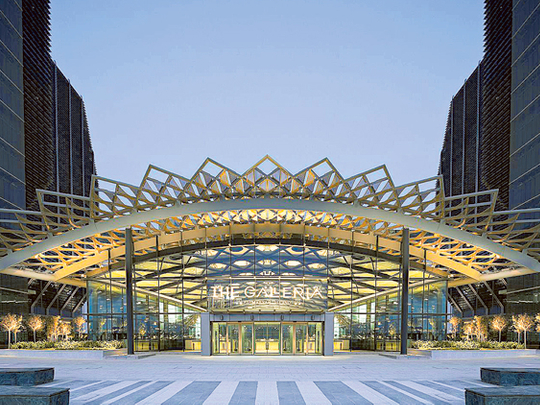
With increasing signs of improvement in the UAE’s economy on the back of strong growth of real estate assets, there has been a surge in investor confidence, particularly in the retail occupier market.
Abu Dhabi’s retail sector, in particular, continues to garner significant interest from global and regional retailers. While Dubai has kept its crown as the UAE’s largest retail market, with a stream of impressive entrants in the capital this year, Abu Dhabi has clearly outpaced its neighbour in terms of retail growth.
This is evident by the fact that during 2013, Abu Dhabi delivered 168,000 square metres of retail space, placing it in 18th position globally for shopping centre space completed, and Number One in the GCC, according to a recent study by real estate firm CBRE.
In comparison, last year Dubai delivered just 35,000 square metres of retail space. This is an accomplishment in itself, but what makes it even more interesting is that the population of each of the countries ahead of the UAE — China, Russia, Indonesia, and the Philippines — is more than 100 million.
The UAE, on the other hand, only has a population of 9 million, further showcasing its retail success despite its population increasing at a rate lower than other countries.
While Abu Dhabi has always enjoyed a reputation for attracting business and diplomatic travel, its approach to presenting the city as a tourist destination is heavily anchored on culture, entertainment and heritage. This strategy of welcoming world-class entertainment and tourist attractions has clearly caught the attention of international retailers.
The capital is often termed as a shoppers’ paradise with a number of shopping options, including the recently launched, The Galleria, whose opening last year brought a significant number of new luxury and food & beverage brands in the emirate for the first time.
These developments have brought Abu Dhabi forward on the global retail map, positioning the capital, very rightly, as an independent global brand. Supplementing the retail facilities, the capital is also proactively building an ongoing program of artistic and cultural events and exhibitions that celebrate music, literature and the arts.
Major development projects include the Saadiyat Cultural District, the Guggenheim and the Louvre Abu Dhabi. Thrill seekers are able to ride the world’s fastest rollercoaster at Ferrari World Abu Dhabi, which has seen visitor numbers soar since it opened in 2010.
For Abu Dhabi, retail forms one of the most vital streams of economic activity. The government recognises this and steps have being taken to generate synergy for public-private partnerships to boost the emirate’s hospitality and travel markets — two industries that directly impact the retail business.
The government’s policy highlights the intention to support the growth of retail-driven tourism by focusing investment on locations with the potential to become world-class retail destinations. These include the Yas Mall on Yas Island, which is due for completion in the final quarter of 2014, along with other major centres.
These measures will clearly lead to an increased number of tourists flocking the capital and eventually boosting the emirate’s retail industry. Avid travellers from across the world with high disposable incomes are already seen in large numbers splurging on luxury accessories across the capital. Chinese tourist arrivals in Abu Dhabi alone reached 32.259 in the first quarter of 2014.
Abu Dhabi represents ideal conditions for international retailers. It is also a perfect launch pad for entering the other Middle Eastern and African markets.
It will continue to thrive due to increasing purchasing power, a growing expatriate population, strong brand association, solid household consumption and modern retail concepts coupled with the expanding tourism and hospitality sectors. Investments from Chinese and Russian companies and high net worth individuals is also expected to provide further impetus to various ongoing construction projects in the emirate.
Combined, Dubai and Abu Dhabi present visitors with every conceivable attraction, each charting its own course. As the nation prepares for Expo 2020, the race is on to keep pace with the influx of visitors, a challenge that both emirates must meet. If previous form is anything to go on, Abu Dhabi looks set to more than meet the challenge.
The capital’s retail market has never looked this promising.
— The writer is Chairman of Pragma Group.












